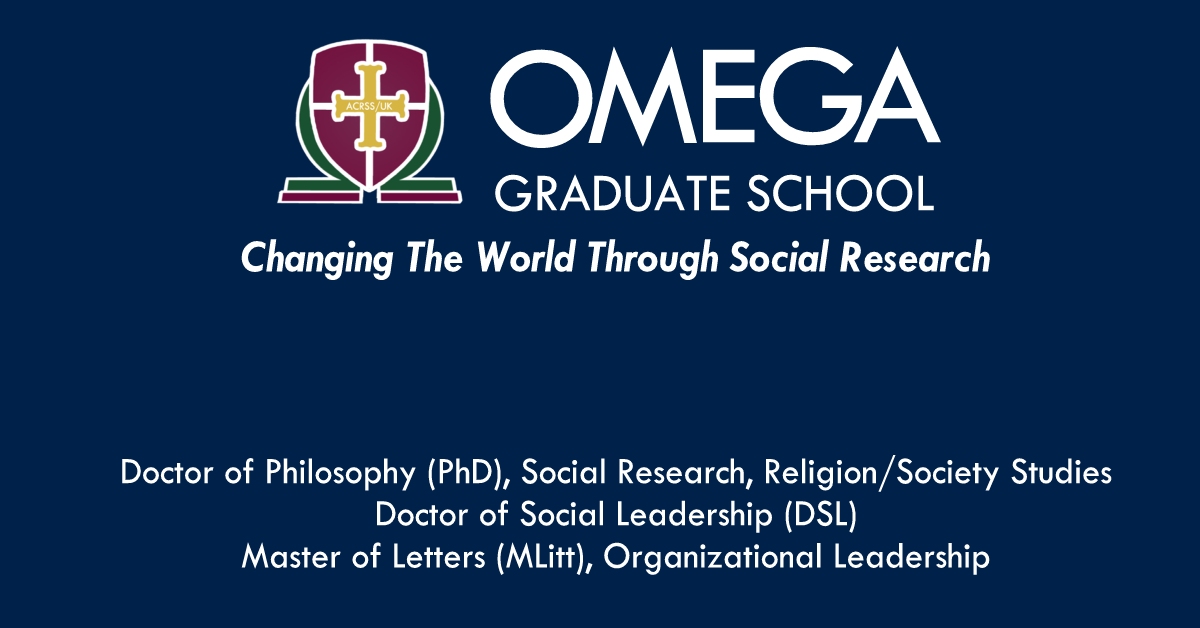
What is a DSL (Doctor of Social Leadership)?
DSL def is a Doctor of Social Leadership and is different to other doctoral programs in how the curriculum is anchored in the practical application of leadership theories to drive change.
Practical Leadership in Social Change
Are you passionate about driving social change and making a tangible impact on communities? A DSL (Doctor of Social Leadership) degree from Omega Graduate School (OGS) might be your ideal path. Let’s explore what a DSL def (Doctor of Social Leadership) is and why it stands out:
Practical Leadership in Social Change
A DSL def (Doctor of Social Leadership) at OGS equips you with practical leadership skills to effect real societal change. It’s not just about theory; it’s about empowering you to lead and drive constructive social initiatives.
Applied and Clinical Sociology
Our DSL program emphasizes applied and clinical sociology, allowing you to apply sociological principles directly to real-world challenges. You’ll gain hands-on experience in addressing societal issues.
Christian Faith Integration
At OGS, we believe in integrating Christian faith into every aspect of life, including academic pursuits. The DSL program offers a unique opportunity to explore the intersection of faith and social research, contributing to a holistic understanding of human societies.
Short Duration, Affordable Education
One standout feature of the DSL def (Doctor of Social Leadership) program is its efficiency. With just 36 credit hours, you can earn your doctorate in a shorter duration than traditional programs. This saves you time and makes it an affordable choice for aspiring leaders.
Action Research
Action research is at the core of the DSL program. It’s not about passive observation; it’s about actively engaging with communities, identifying challenges, and implementing solutions. You’ll be a proactive agent of change.
In a world where societal issues require practical solutions, a DSL from OGS empowers you to become a leader who understands social research and takes action to make a positive difference. If you’re ready to drive change and lead purposefully, explore our DSL program and start your journey today.
DSL Def (Doctor of Social Leadership) vs. PhD, DMin, and EdD: A Comparative Overview
When considering doctoral programs, it’s essential to understand their key differences to choose the one that aligns with your goals and interests. Let’s compare a DSL with a PhD, DMin, and EdD:
1. DSL def (Doctor of Social Leadership)
Focus: Practical leadership in social change, applied and clinical sociology, and faith integration.
Duration: Shorter (just 36 credit hours).
Research: Emphasizes action research and hands-on engagement with societal issues.
Career Enhancement: Ideal for those aiming to lead social change initiatives, work in sociology-related roles, or integrate faith into social research.
2. PhD (Doctor of Philosophy):
Focus: Depth of research and knowledge in a specific field.
Duration: Typically longer (4-7 years).
Research: Emphasizes theoretical research and original contributions to academic knowledge.
Career Enhancement: Primarily academic and research-oriented, suitable for those pursuing careers in academia, consulting, or governmental/corporate research.
3. DMin (Doctor of Ministry):
Focus: Practical theology and ministry.
Duration: Usually 3-4 years.
Research: Includes research but often focuses on applying theological principles to real-world ministry.
Career Path: Designed for those in ministry leadership, clergy, and pastoral roles.
4. EdD (Doctor of Education):
Focus: Education leadership, policy, and administration.
Duration: Varies (3-7 years).
Research: Combines research with practical applications in educational settings.
Career Path: Geared towards educators, administrators, and policymakers in education.
Conclusion
In summary, a DSL def (Doctor of Social Leadership) is distinct in its focus on practical leadership in social change, applied sociology, and faith integration. It stands out for its shorter duration and affordability. PhD programs emphasize theoretical research and best suit those pursuing academic or research careers. DMin programs are tailored for ministry leaders, while EdD programs are designed for those in educational leadership and administration. Your choice should align with your career goals and passions, whether they involve social research, academia, ministry, or education.
